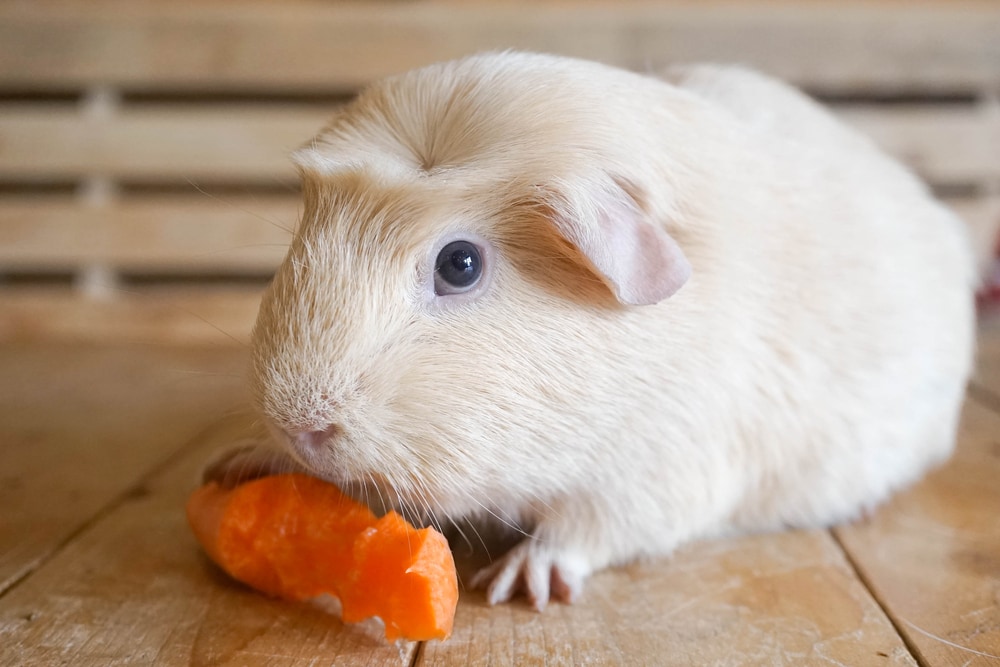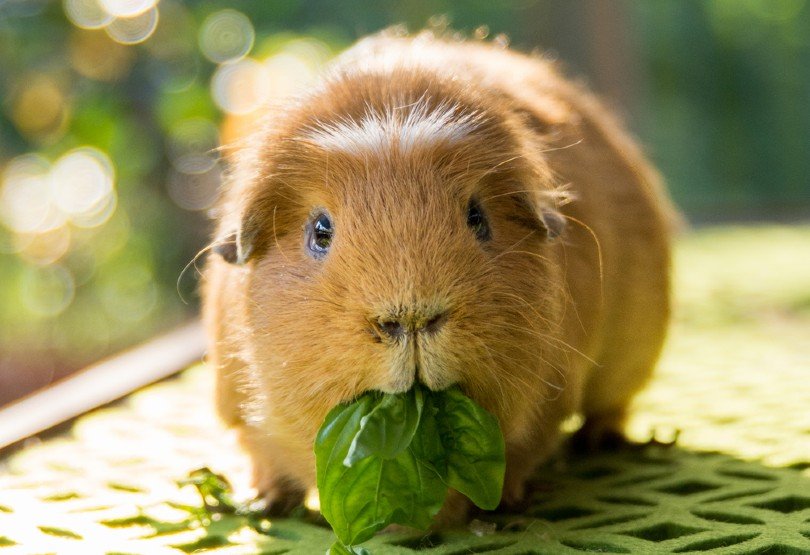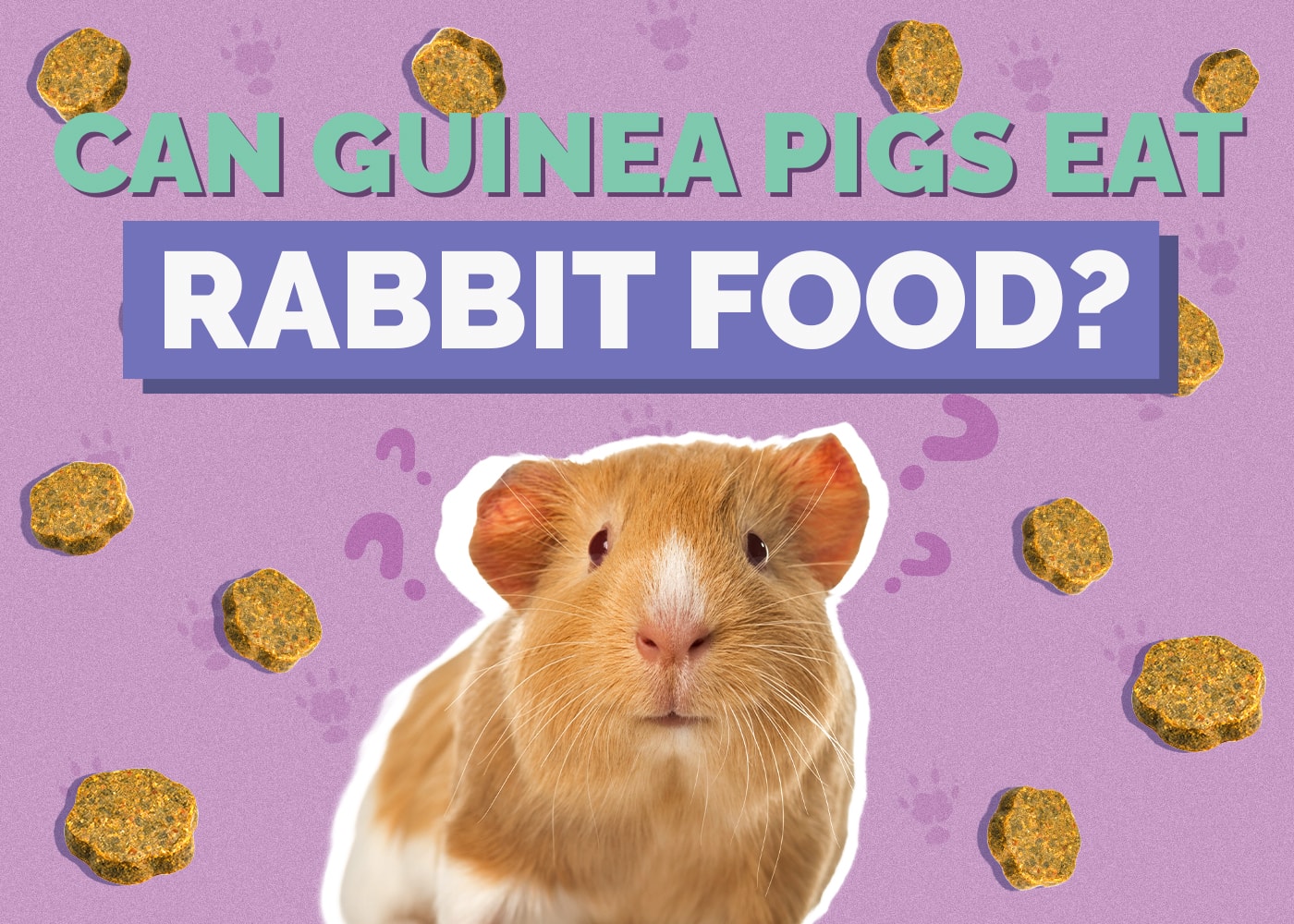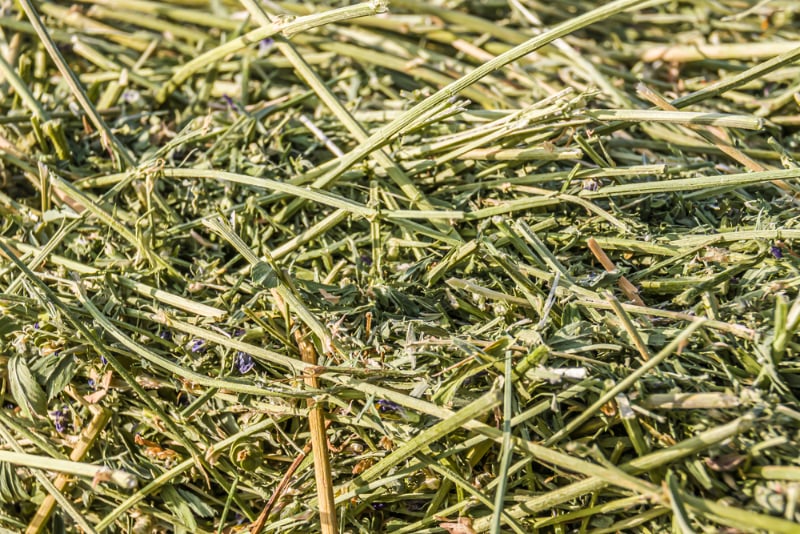Can Guinea Pigs Eat Spinach? Vet-Reviewed Facts
Updated on

Keeping a Guinea Pig healthy isn’t too complicated, which is one reason they make such popular pets, but they do need the right diet to keep them healthy. Guinea pigs are herbivores and while vegetables are an important part of a balanced diet for Guinea Pigs, some are better choices to feed regularly than others. Guinea pigs can eat spinach but in small quantities only.
In this article, you’ll learn why spinach should only be fed to Guinea Pigs sparingly, and which vegetables may be better choices. We’ll also cover the basics of feeding a Guinea Pig, including foods your pet should avoid.
The Problem with Spinach
Spinach is a leafy green and is high in vitamin C and other essential nutrients, and low in sugar. However it is high in calcium and oxalates, which can cause problems in guinea pigs. Unlike most animals, Guinea Pigs absorb all calcium in their diet and then remove extra calcium they don’t need from their bodies in their urine.
Because of this (and other factors,) Guinea Pigs are prone to developing bladder and kidney stones made primarily of excess calcium. Although there’s no way to prevent all bladder stones in Guinea Pigs, one precaution you can take is to avoid feeding too many high-calcium foods to your pet. In general spinach should not be fed more than once or twice a week.

The 6 Things to Give Your Guinea Pig & How Much
1. Hay
About 75% of your Guinea Pig’s daily diet should be grass hay. Timothy, meadow, or orchard hay are all good options. Make sure your pet always has access to fresh hay to help keep their teeth and digestion healthy.
2. Vegetables
Guinea pigs should eat about ½-1 cup of vegetables per day, ideally a mix of two or three types, the majority of which should be different types of leafy greens. Red, yellow, and orange vegetables are good additional options because they provide Vitamin C, which Guinea Pigs can’t produce on their own. Try offering your Guinea Pig some of these vegetables:
- Spring greens
- Parsley
- Carrot tops
- Leaf lettuce
- Cilantro
- Bell peppers

3. Pellets
You can feed your Guinea Pig approximately 1–2 tablespoons of a Guinea Pig-specific pellet diet daily, always following the manufacturers feeding guidelines . Avoid ‘muesli mix’ type diets that include seeds, nuts, or dried fruit. Also, don’t substitute pellet diets for other species, like rabbits.
4. Fruit
Although Guinea Pigs can eat fruit, it should only be offered as a treat, about once a week or so. Fruit is high in sugar, and eating too much can lead to obesity. Apples, berries, and cantaloupe are good fruit options for your Guinea Pig.
5. Vitamin C
As mentioned, Guinea Pigs can’t produce their own Vitamin C like many other animals. They must obtain this necessary nutrient from external sources. Eating hay, fruits, vegetables, and guinea pig pellets can all provide your Guinea Pig with Vitamin C. However, some pets may also need to take a Vitamin C supplement. Discuss this with your veterinarian.

6. Water
Provide your Guinea Pig with a constant supply of water. Change the water daily and ensure your pet’s drinking vessel stays clean.
Foods Your Guinea Pig Should Have Sparingly or Avoid
Besides spinach, other high-calcium greens include kale and chard. Some other vegetables your Guinea Pig should only eat in moderation include broccoli, cabbage, bok choy, and Brussels sprouts. These vegetables can make your Guinea Pig gassy.
Don’t feed your Guinea Pig high-starch foods like bread, cereal, corn, or peas. Never feed spoiled or unwashed food items, either. Remove uneaten fruits and vegetables from your pet’s enclosure every day.
Conclusion
Although Guinea Pigs can eat spinach, it should only be fed in moderation. Other vegetables are better staple options. Introduce any new food to your pet slowly to avoid upsetting their stomach or causing diarrhea. Guinea pigs should have free access to hay and this should form the majority of their diet. They need to eat almost constantly because of their high metabolism, but they can also become overweight if they consume the wrong foods. Your veterinarian can help you choose the best diet for your Guinea Pig, so they stay healthy and avoid medical complications like bladder stones.
Related Reads:
- Can Guinea Pigs Eat Cabbage? Vet Approved Nutrition Facts & FAQ
- Can Guinea Pigs Eat Kiwi? Vet-Reviewed Nutrition Facts & FAQ
Featured Image Credit: Ponce_photography, Pixabay












